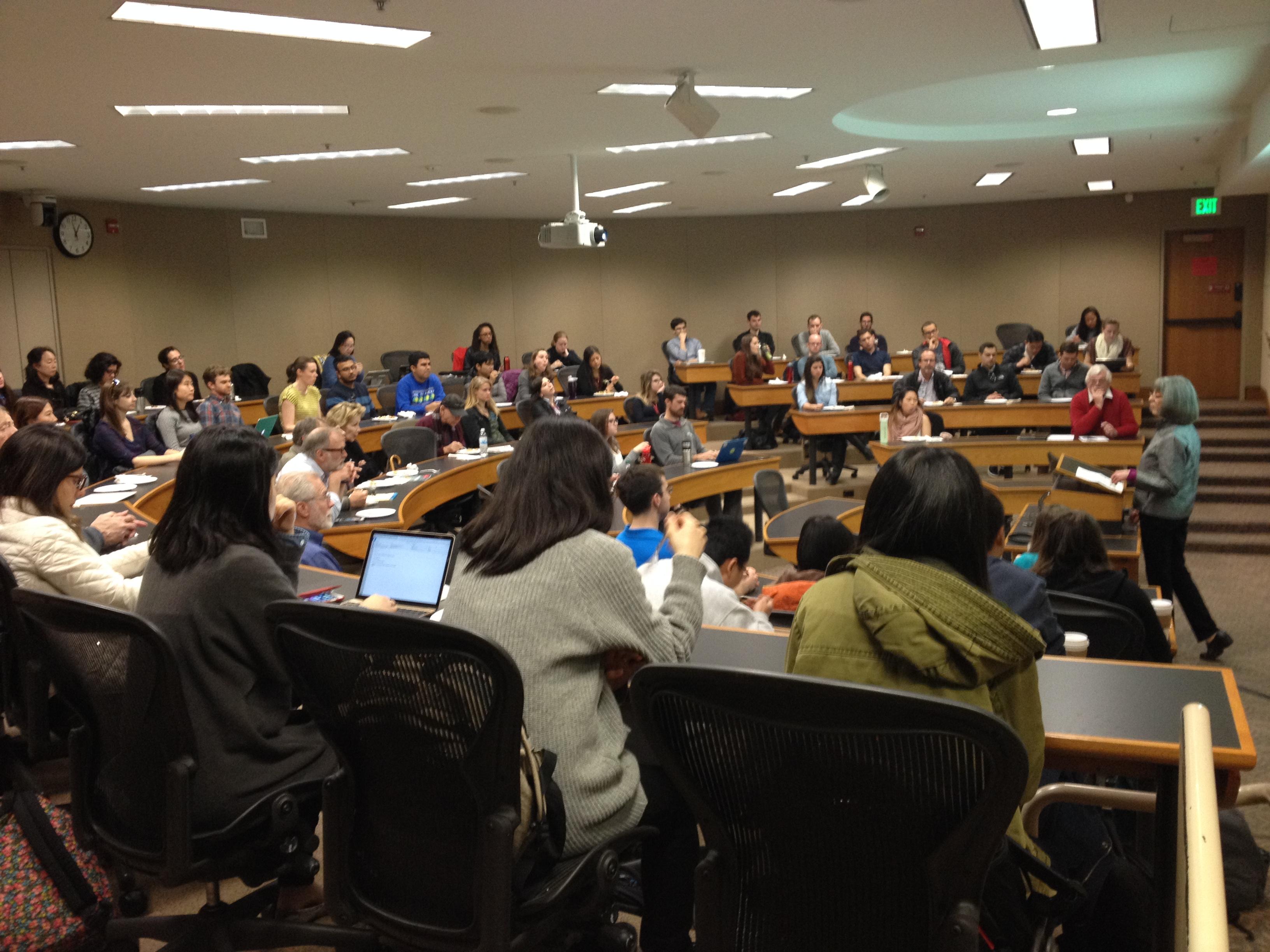Human Gene Editing for Reproduction: What’s at Stake and Where Should We Draw the Lines?

Hosted by Stanford BioLaw and Health Policy Society, which invites speakers to present on-campus to discuss their current work/research in the fields of biotechnology, bioethics, and/or health policy.
Marcy Darnovsky, executive director of the Center for Genetics and Society, unpacks the controversies that have erupted in recent months about how we should—and should not—use gene editing tools, and explores the technical, social, and ethical stakes of these imminent decisions. Some forty countries, including most Europe nations, have adopted laws prohibiting human heritable genetic modification, but the United States has not.
Should we use these tools to improve the human species? Are they needed to prevent the transmission of genetic diseases? Would manipulating the genes of future children and generations open the door to new kinds of discrimination, inequality, and eugenics?
Marcy's powerpoint presentation is available for viewing.
Image courtesy of Natalie Oveyssi



